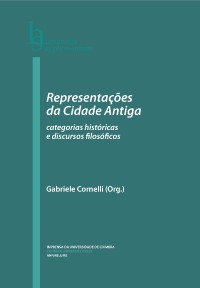Please use this identifier to cite or link to this item:
https://hdl.handle.net/10316.2/31533| Title: | Platão: a cidade das leis e o poder do rumor | Other Titles: | Plato: city of laws and the power of rumor | Authors: | Norjosa, Solange | Keywords: | Laws;Rumor;Paidéia;Mousiké;Leis;Rumor;Paidéia;Mousiké | Issue Date: | 2012 | Publisher: | Imprensa da Universidade de Coimbra Centro de Estudos Clássicos e Humanísticos |
Journal: | http://hdl.handle.net/10316.2/2342 | Abstract: | In his last dialogue, the unfinished Laws, Plato projects his last cities in the foundation
of Cretan. Maintaining some similarities with the cities of The Republic, in his plan to create a
city of laws, as an investor legislator he innovates the power of rumor. The objective of this paper
is to show how Pheme (rumor) the goddess uses the choir of the children, adolescents, adults and the old men in the process of educating the citizens No seu último diálogo, As Leis, Platão projeta a fundação em Creta de sua última pólis. Mantendo algumas semelhanças com a pólis d’A República, nosso filósofo com investidura de legislador inova em seu plano criando uma cidade das leis levando em consideração o poder do rumor. Demonstrar como a deusa Phéme (rumor) age na educação da cidade a partir dos coros de crianças, de jovens, de adultos e de anciãos é o propósito desta comunicação |
URI: | https://hdl.handle.net/10316.2/31533 | ISBN: | 978-989-26-0295-0 (PDF) | DOI: | 10.14195/978-989-8281-20-3_12 | Rights: | open access |
| Appears in Collections: | Representações da Cidade Antiga: categorias históricas e discursos filosóficos |
Files in This Item:
| File | Description | Size | Format | |
|---|---|---|---|---|
| 12-representacoes_da_cidade_antiga_artigo.pdf | 156.24 kB | Adobe PDF |  |
Items in DSpace are protected by copyright, with all rights reserved, unless otherwise indicated.
